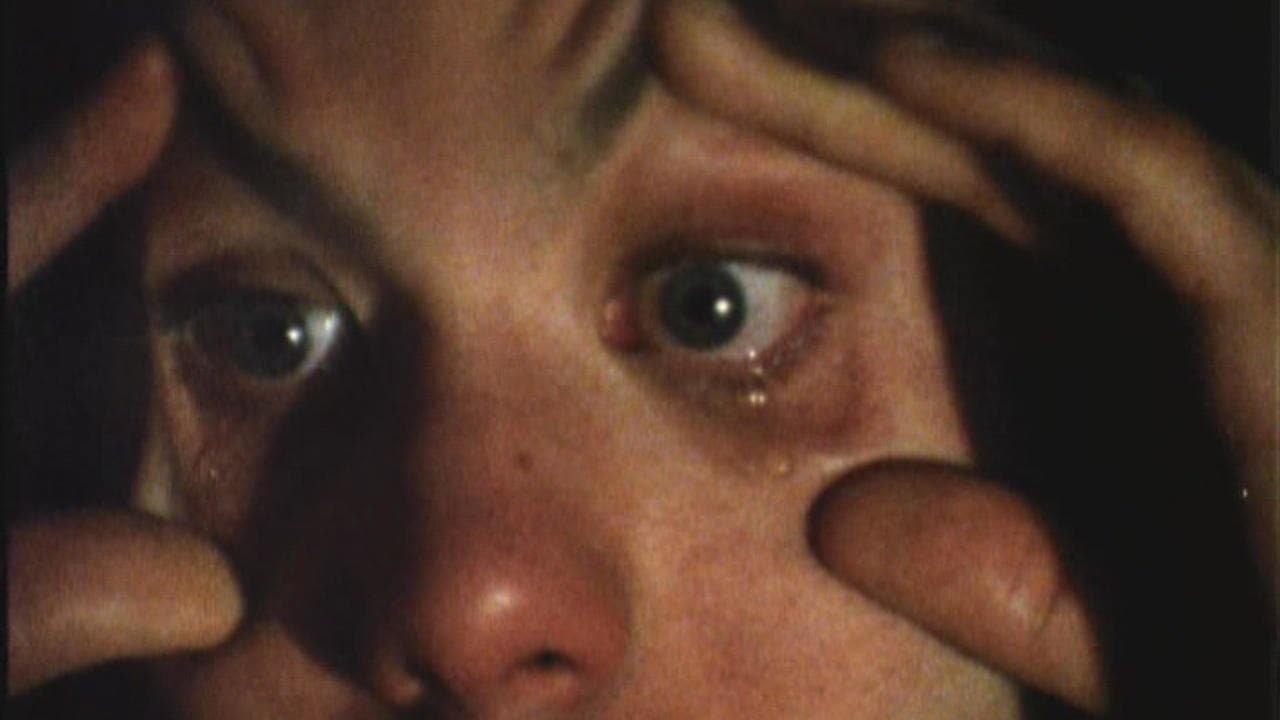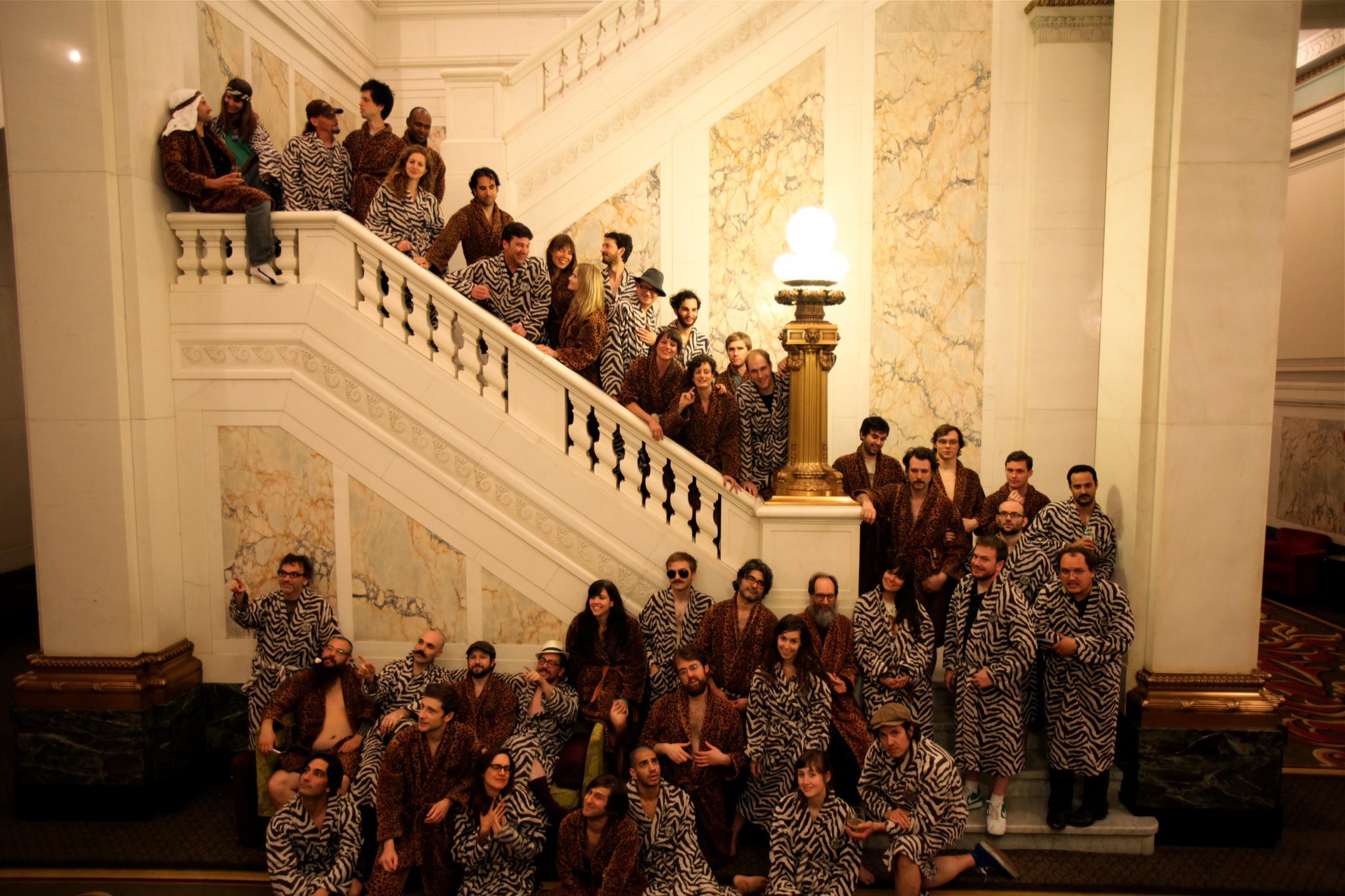Matt Grady
Matt Grady is the founder of Factory 25, a Brooklyn-based independent film distribution and production company and Filmatique's partner for its first ever American Indie Series. Due to his unique vision for conceptually bold films and his dedication to physical media, Grady has been described as "one of the most important curatorial voices of new, independent American films"—he has championed first works including Sun Don't Shine, For the Plasma, Christmas, Again, Ma, Two Gates of Sleep, and many others.
In an exclusive interview with Filmatique, Matt Grady discusses the genesis of Factory 25, his boredom of safe films, the desire for physical objects in an increasingly digital world, and which American film festival he goes to in search of not only the best programming, but the best catering too.
//
FILMATIQUE: Over the years Factory 25 has cultivated a strong identity as a maverick distributor that takes curatorial risks, bringing works from fresh new voices in American cinema to wider audiences. Can you provide our readers with a bit of context regarding your journey— how did you end up distributing these films? When and how did you identify this hole in the distribution chain?
MATT GRADY: Out of college I wanted to edit and direct, which led to working at post-houses in Chicago. I then ended up at a post-house in Boston when DVDs had just been introduced; I convinced them to start an authoring wing of the company and I dove into producing DVDs. At the time there were very few places that authored DVDs, and before long I was working with filmmakers and studios. At a certain point I was managing over a dozen people. This was my first peek at how distribution worked.
In 2002 I moved to Brooklyn to join Gary Hustwit at the the distribution company Plexifilm. It was a bit of a risk as Plexifilm hadn't released a film at that point, but we were like-minded about the films we wanted be involved with and he had already picked up a handful of films that I was totally into including Ciao! Manhattan, Benjamin Smoke, Style Wars, I am Trying to Break Your Heart: A Film About Wilco and Friends Forever. I stayed at Plexi through 2009 and am really proud of that catalog and the Plexifilm aesthetic.
In 2009, I launched Factory 25. There were many films that I wanted to distribute that were considered too risky for many distributors. I knew I could get them out into the world. The big push to start F25 was that I wanted to release Frownland. That film blew me away and affected me like no other film had before. I needed to distribute it. It was the first Factory 25 release and a major reason why I made the leap to start my own company.
Ciao! Manhattan, John Palmer (1972) // Initial DVD release 2002
FLMTQ: Regarding curation, many of your titles are from first-time directors. How do you decide to acquire and/or distribute a particular film? What compels you toward them; in other words, do you believe there is a certain quality that distinguishes filmmakers worth investing in
MG: I really look for filmmakers with distinct vision. I am attracted to polarizing films that make me feel something and am drawn to extremes— whether it's a punk aesthetic, a silent film told through dance or a Japanese love affair with insects. I'm bored of safe, middle-of-the-road films with a Hollywood three-act structure which often doesn't work with micro-budget films anyway.
FLMTQ: You've stated in past interviews that you tend to avoid films involving "guns (only one of my films have a fired gun)," a rare sentiment within a cinema culture that tends to fetishize violence in the service of commercial gain. Ultimately, cinema seeks to portray the world we live in, in turn shaping that world. Is your decision to abstain from distributing films featuring violence a conscious political choice, or rather one formed by personal taste?
MG: When I'm watching a film with potentially distributing it in mind, and a gun comes on screen, I don't automatically dismiss it. What matters is that I respond emotionally to the film with or without firearms. It's not a political choice to avoid guns; rather, I find their use in films tiresome as they are often used as a device to push the story along in an unoriginal way. I've also never been a fan of war films as I find even the classics from that genre tedious, but I do love Serge Bozon's Le France.
That said, I do believe that there is absolutely no reason why handguns shouldn't be illegal.
Frownland, Ronald Bronstein (2008)
FLMTQ: In a more general sense, how do you manage to strike a balance between the commercial prospects of a film with its artistic merits? What do you see as the ideal balance, aware as you are of the very real challenges involved in distributing art-house films in the United States?
MG: For better or worse, and I think better, I always put artistic merits first. If I love a film, I trust that others will like it as well. Of course that's not always the case, but most of the Factory 25 films have had critical acclaim and some without what most would consider commercial success. To me, a film is successful if finds it audience, no matter how big or small the audience may be.
FLMTQ: What are your favorite film festivals to attend, and why? Anecdotes welcome.
MG: My favorite film festival is the Maryland Film Festival in Baltimore. The festival has amazing programing and is focused on building a filmmaker community. I've walked away from MDFF with more friends and collaborators than any other festival. They also have a day-long locked-door filmmaker conference that is an open discussion about the state of filmmaking and the state of the industry. They also have the best catering in any filmmaker lounge at any festival.
Personal photo from the Maryland Film Festival 2011 by Jarred Alterman. "This photo is full of some of the best and most influential American indie filmmakers of today— with New Yorker film critic Richard Brody right in the middle of it all— including in no particular order: David Lowery, Alex Ross Perry, Josh Safdie, Craig Zobel, Michael Tully, Sean Price Williams, Calvin Lee Reeder, Robert Longstreet, Lindsay Pulsipher, Jarred Alterman, Onur Tukel, Zach Treitz, Judith Mizrachy, Jennifer Prediger, Aaron Hillis, Clay Liford, Keha McIlwaine, Lawrence Levine, Jennifer Loeber, Nandan Rao, Eleonore Hendricks, Holly Herrick, Sophia Takal, Kate Lyn Sheil, Hari Leigh, Scott Braid, Charles Poekel, Clay Liford, Robert Greene, Craig Butta, James Johnson, Robert Malone, Daniel Laabs, Matt Grady, Daniel Metz and Kentucker Audley." / MG
FLMTQ: Much has been made of the rapidly-evolving distribution landscape, especially since tech giants such as Netflix and Amazon have entered the space. Do you think disruption to the traditional film distribution model is necessarily a bad thing? What is your opinion in regards to the future of the way Americans watch movies?
MG: There needs to be more disruption to the model. Film distribution has been in a constant state of flux since the rise and fall of the DVD market. The major subscription on-demand services have become the studios of our time. They've already crushed the transactional video-on-demand market.
I believe there will always be an theatrical audience. There is nothing like seeing a film on the big screen and that's not going anywhere. But there needs to be better options for curated American Indies in the digital world and I'm working on new ideas to make that happen.
FLMTQ: Factory 25's dedication to physical media— whether limited edition DVDs, vinyl LPs or books— emphasizes the notion of music and cinema as aesthetic objects in an increasingly digital world. What is your relationship with these physical objects; how do you think our relation to art can transform once we hold it on our hands, or arrange it on our bookshelves?
MG: Physical media makes the art real with a sense of permanence that digital does not. People don't want discs in plastic boxes, that time is done. But people want to fetishize items and I've been working on physical releases that are so much more than just a disc, and do more to build the world of the film. I've been releasing books, vinyl, box sets and more.
FLMTQ: Do you have a story or anecdote regarding a creative or out-of-the-box method you've used to distribute a specific film?
MG: I have a couple on the physical side of distribution. One is that I've released a couple films on VHS and strangely they have sold better than discs. And my favorite physical release of late has been the Uncle Kent 2 novelization with a download code. I loved novelizations when I was a kid and was so much fun making one for one of my films.
Novelization of Uncle Kent 2, Todd Rohal (2015)





